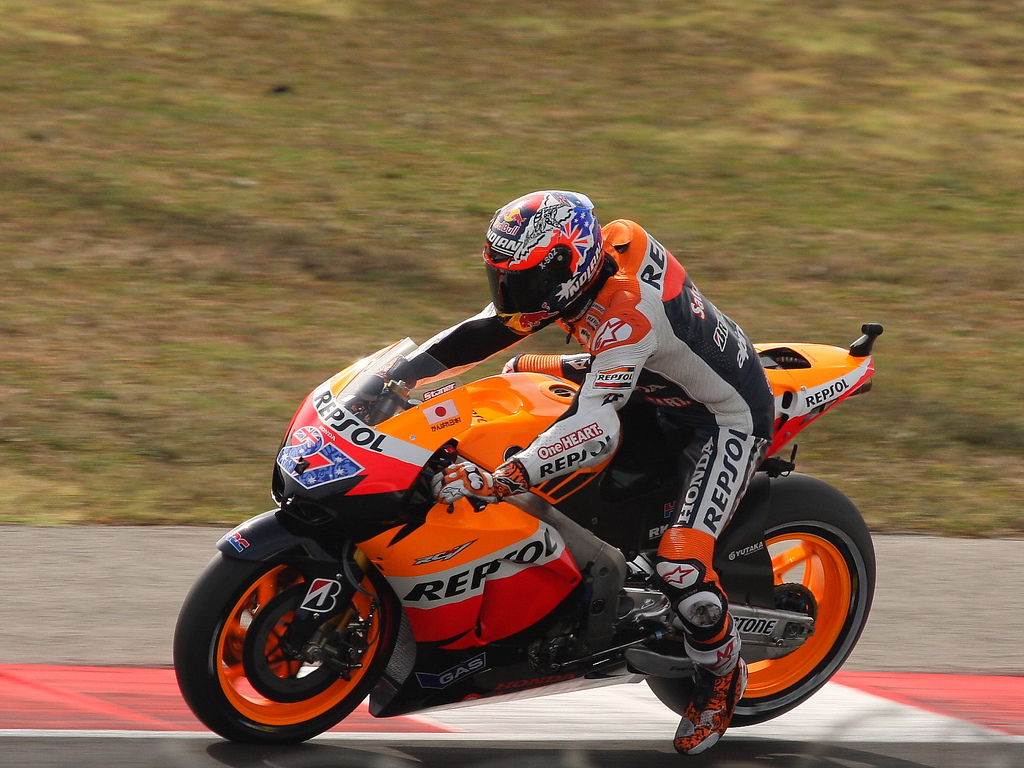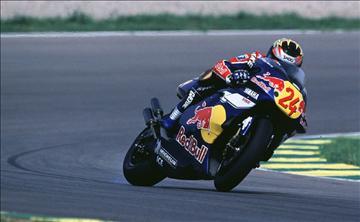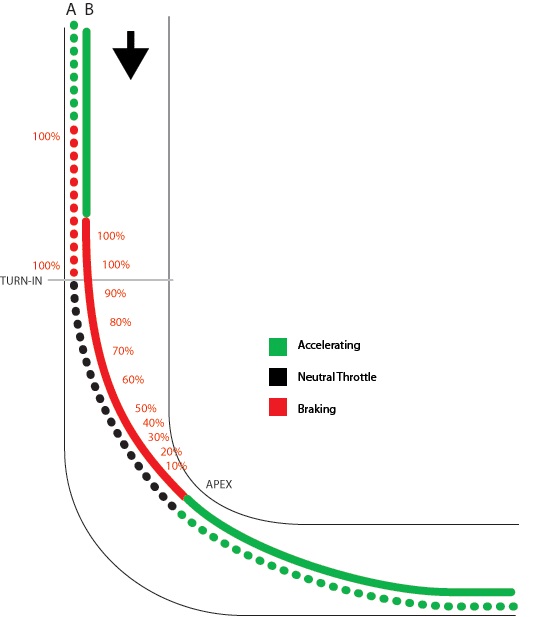Have you ever wondered why and how Rossi or Marquez continue breaking till the apex and not fall? Here’s the physics to it.
They use a technique known as ‘Trail Braking’. It is an advanced braking technique where one continues to use the brakes beyond the turn-in point and then gradually ‘trailed’ off towards the apex. In other words you’re tapering-off the pressure on brakes as you’re leaning in and approaching the apex.
It is essential to taper-off (the pressure on the brakes) as you approach the apex to avoid the sudden rebound from the front suspension. If the brakes are left suddenly, the front suspension would expand too quickly and unsettle the bike. And we all know what happens when we unsettle the bike in mid corner.
Trail braking is typically done using the front brake only, although it can be done with either or both brakes. A tap on the rear brake when leaned-in (quickly accelerating after that) slides the rear, hence changing the direction of the bike and tightening the turn. This deliberate controlled skid is called a powerslide.
Trail braking increases the risk of losing traction and therefore should not be performed regularly on the street. However it can be useful for street riders to salvage a corner entry that’s too fast. On the racetrack, trail breaking has a different story altogether. It is used by riders to carry more entry speed and have a more aggressive line on the track. Let us see how.
Helps you turn quicker: You’re continuously braking while you’re turning in. The braking compresses the front suspension, which shortens the wheelbase slightly. Consequently the bike turns in quicker.
Increases control and stability: Staying on the brakes past the turn-in point allows more time and space to get your entry speed right. It minimizes forward and rearward movement that occurs while applying and releasing the brakes. Mid-corner adjustments are easier as the suspension has already set in and there are less chances that you unsettle the bike.
Practice! Practice! Practice! Mastering trail braking needs a lot of practice. Took us a couple of track days to understand it ourself. Trail braking is a technique that combines both cornering and braking forces. You must develop a feel for how much brake power is possible without losing traction. Brake feel is a skill learned with practice.
Learn to use two fingers for braking. This allows the use of both brake and throttle which is useful for transitioning smoothly between braking and acceleration. Overlapping brake and throttle is again an advanced technique for smooth transition from brakes to acceleration when fully leaned in a corner. It helps in smooth load transfer onto the rear wheel.
There’s more to braking than just trail braking. One needs to understand the dynamics of load transfer on traction. It is an important skill that should be learnt to become a fast paced rider on the track and a safer rider on the streets.




